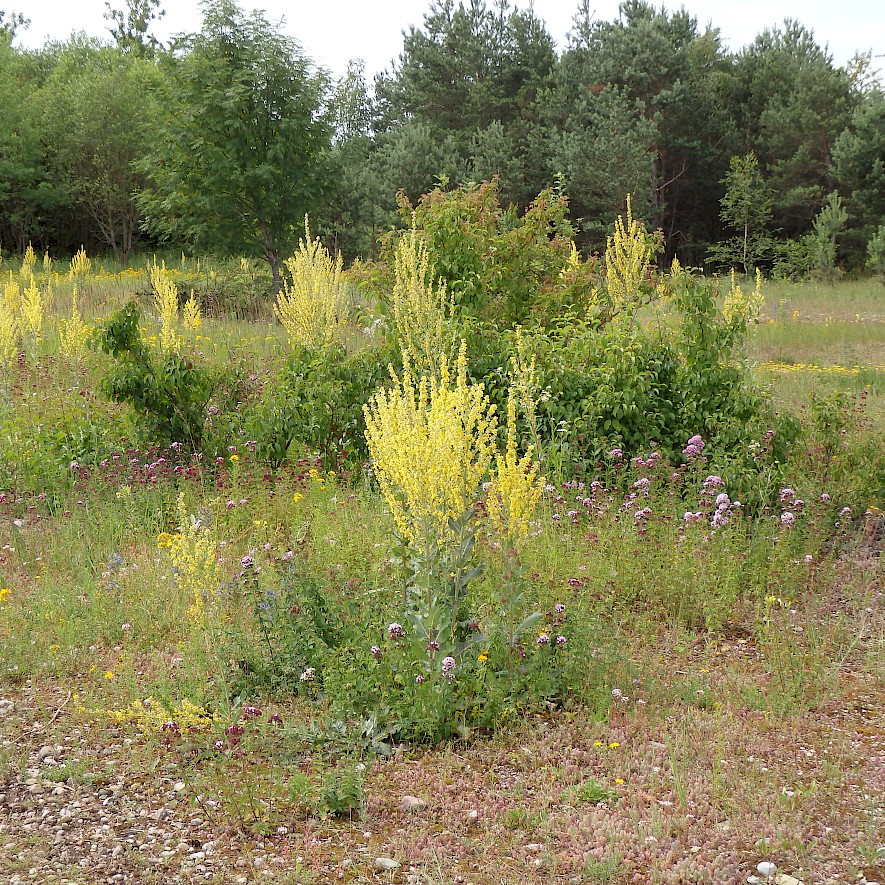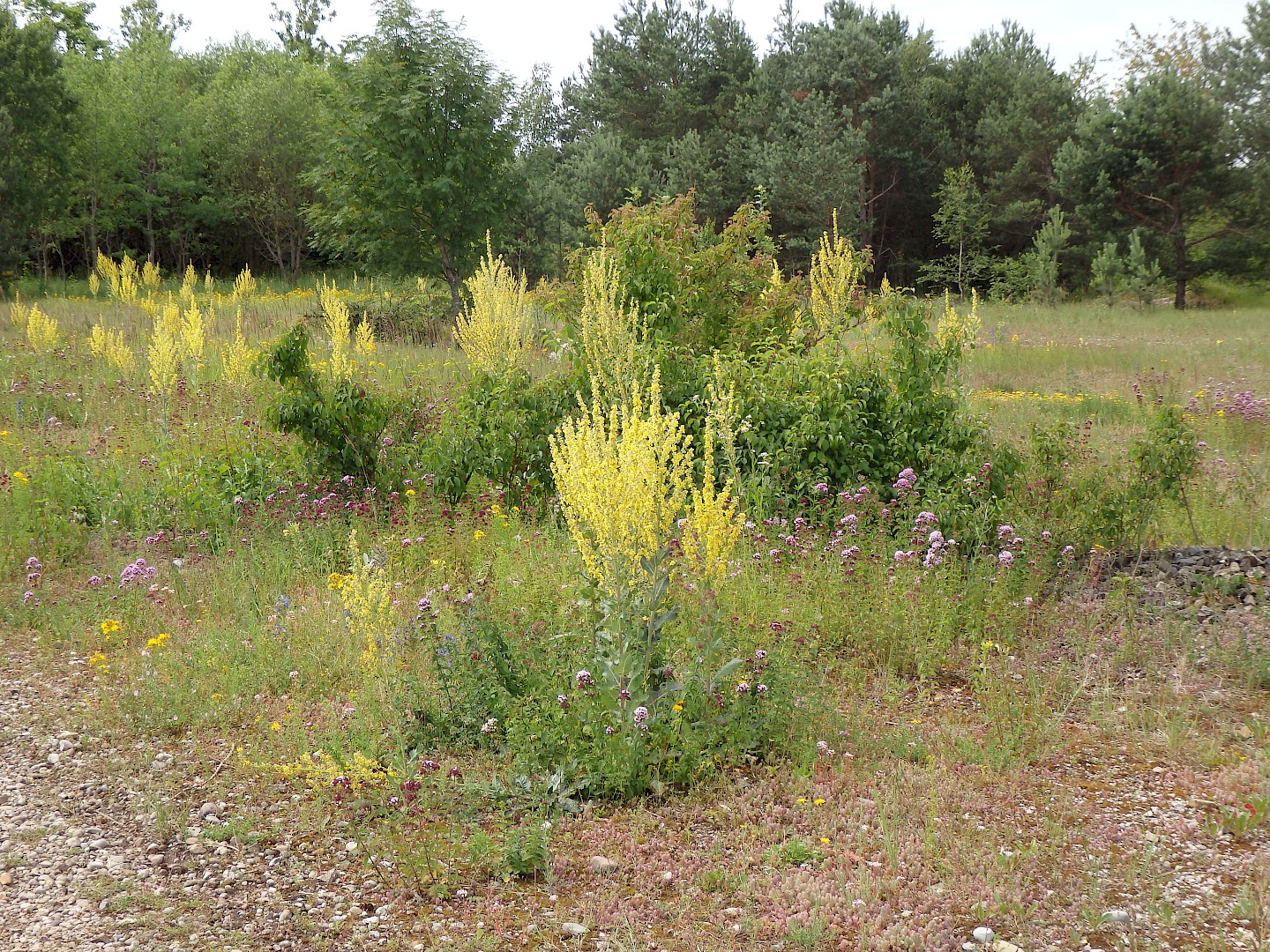Since it was abandoned in the 1980s, a biotope of supraregional importance has developed on the 13-hectare site, providing a habitat for numerous protected animal and plant species. A mosaic of dry and lean vegetation has developed on the remaining rail tracks, weathered hall floors and gravelly storage areas.
For the sand lizard, endangered grasshopper species such as the common sickle bush, and rare wild bees such as the dwarf woolly bee, the rail yard is one of Munich's most important habitats. Shaggy flag vetch, fine-leaved kidney vetch, and grass-clove hawkweed, among other endangered plant species, distinguish this site as a true treasure.
In order to preserve the open and spacious character of this unique habitat, the lean meadows are mowed according to a particularly well thought-out system and emerging woody plants are cut back.





